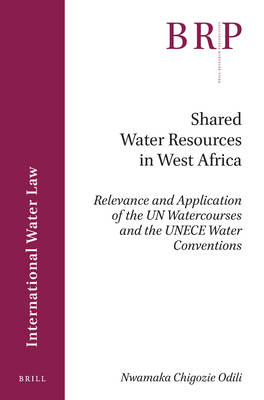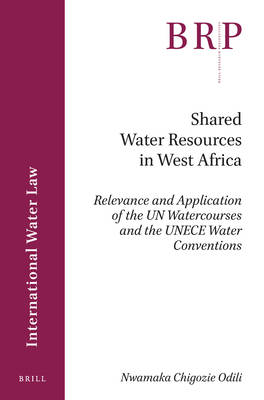
- Afhalen na 1 uur in een winkel met voorraad
- Gratis thuislevering in België vanaf € 30
- Ruim aanbod met 7 miljoen producten
- Afhalen na 1 uur in een winkel met voorraad
- Gratis thuislevering in België vanaf € 30
- Ruim aanbod met 7 miljoen producten
Zoeken
Shared Water Resources in West Africa
Relevance and Application of the Un Watercourses and the Unece Water Conventions
Nwamaka Chigozie Odili
€ 128,45
+ 256 punten
Omschrijving
This work, Shared Water Resources in West Africa: Relevance and Application of the UN Watercourses and UNECE Water Conventions, addresses the question of whether riparian states in West Africa need to be parties to both the UN Watercourses Convention and the UNECE Water Convention, both of which have influenced current water regimes in the region. The initial transboundary water instruments in the region dealt primarily with navigation, later agreements addressed the need for cooperation, while recent regimes incorporate other principles of international water law articulated in the UN water treaties
Although only six out of its numerous shared watercourses are currently regulated by legal instruments, West Africa contributed through these agreements to the development of international water prior to the adoption of the UN Watercourses and the UNECE Water Conventions in the 1990s.
Although only six out of its numerous shared watercourses are currently regulated by legal instruments, West Africa contributed through these agreements to the development of international water prior to the adoption of the UN Watercourses and the UNECE Water Conventions in the 1990s.
Specificaties
Betrokkenen
- Auteur(s):
- Uitgeverij:
Inhoud
- Aantal bladzijden:
- 100
- Taal:
- Engels
- Reeks:
Eigenschappen
- Productcode (EAN):
- 9789004364820
- Verschijningsdatum:
- 8/02/2018
- Uitvoering:
- Paperback
- Formaat:
- Trade paperback (VS)
- Afmetingen:
- 155 mm x 234 mm
- Gewicht:
- 136 g

Alleen bij Standaard Boekhandel
+ 256 punten op je klantenkaart van Standaard Boekhandel
Beoordelingen
We publiceren alleen reviews die voldoen aan de voorwaarden voor reviews. Bekijk onze voorwaarden voor reviews.











